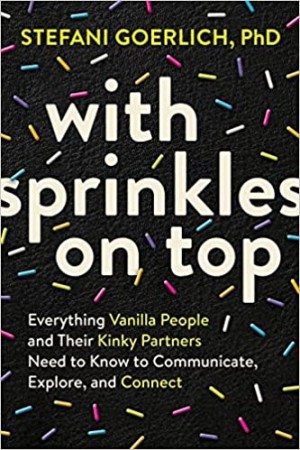Dov Zeller’s The Right Thing to Do at the Time is a delightfully Yiddish-influenced, gender-swapped interpretation of Pride and Prejudice, set in present-day New York City. In place of Lizzie Bennett, with her busybody mother and absentminded intellectual father, we meet hapless, transgender Ari. Ari is a comic victim of circumstance; he’s foiled by his father’s ambitions as a matchmaker, his boss’s contempt, his violin teacher’s insistence that he has talent — and of course the scorn of the beautiful, wealthy Ms. Helen Zonkerman. Ari’s philosophy-professor mother is sarcastic and distant, much like the father in Pride and Prejudice, and the reckless younger sibling role of Lydia Bennett is taken by Ari’s brother, who plays in a klezmer band. Instead of balls and dinners, the characters cross paths at bar mitzvahs and seders, but the romance, the humiliation of tactless family members, and the biting observations of social types remain from Austen’s original.
Although the book’s structure loosely follows Pride and Prejudice, The Right Thing to Do at the Time is more meandering, with a conversational tone that recalls Yiddish classics like Tales of Mendele the Book-Peddler. The story is dreamlike, drawing out the magic inherent in coincidence. For the reader looking for a more straightforward plot, this may be a stumbling block, but it works well if what one wants is a slow-paced ramble.
The narrative is punctuated with frequent interludes into the shared memories of Ari and his best friend, Itche — usually through reminiscences of summer camp, which Ari remembers as the site of early humiliation, as the only transgender attendee. Zeller’s handling of Ari’s gender is refreshingly naturalistic. The comedy of his existence as “a noodle” (as his family names him) includes the everyday moments of morbid humor which plague those of us who do not fit society’s expectations. Particularly memorable is one laugh-out-loud scene of awkward comedy in a JCC locker room, involving a certain silicone appendage and the life-saving obliviousness of others. Jews have always laughed at the horrors that plague us: to see this mode of humor applied to trans life is delightful.
Like Austen or Mendele, Zeller brings his characters to a pleasant conclusion in which love conquers misunderstandings and parental meddling alike. The hapless hero is left happy, and the reader likewise. It’s a mechayeh.
Sacha Lamb (@sachalamb.author on Instagram) explores gender, sexuality, and disability through historical fiction centering Jewish mythology and folklore. Their debut, When the Angels Left the Old Country, is a Printz Honor book and Stonewall and Sydney Taylor award winner. Their second novel, The Forbidden Book, is a Sydney Taylor Honor book and a Boston Globe Best of the Year pick for 2024. A 2018 Lambda Literary fellow, Sacha has a degree in Library and Information Science from Simmons University. They live in New England with a miniature dachshund mix named Anzu Bean.



